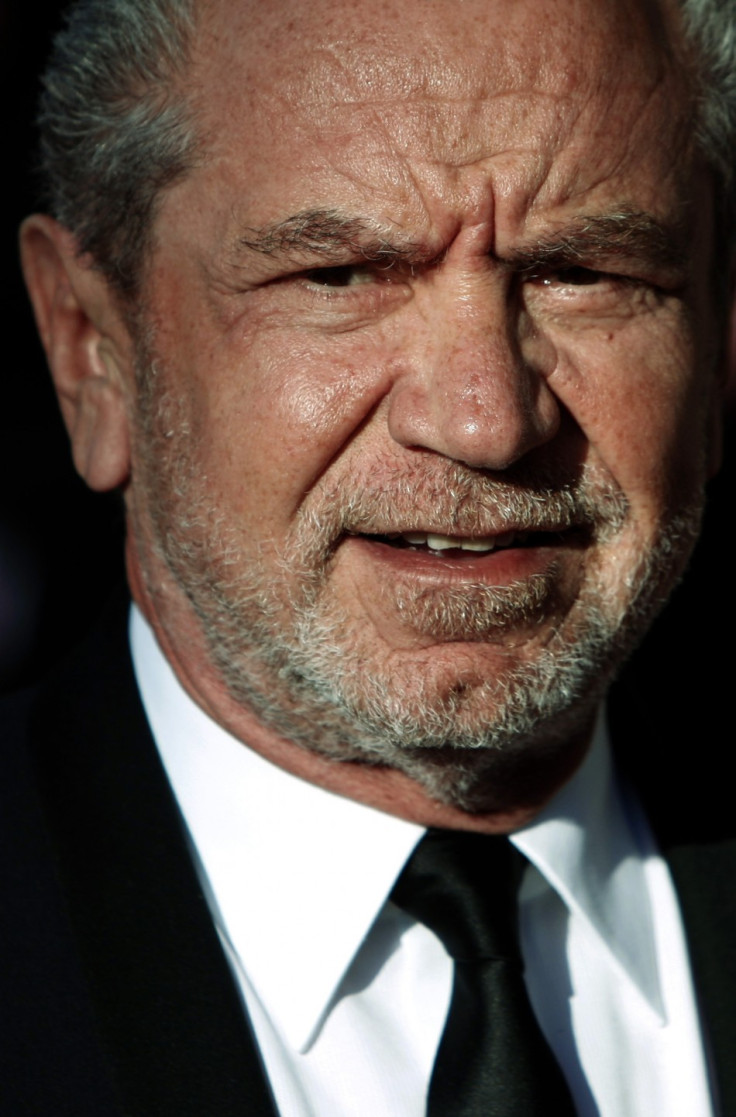Lord Alan Sugar Tweet censored: Future Twitter censorship possible?

With media restrictions lifted, it has come light that Lord Alan Sugar was ordered to remove a Tweet from his Twitter page in January this year, leading to speculation about possible future Twitter censorship laws.
The order came from Mr Justice Saunders and referred to a Tweet he felt could alter the outcome Lord Taylor of Warwick's trial.
The Tweet reportedly indicated Sugar's belief that the court would grant preferential treatment to Warwick as a consequence of his Tory political leanings.
The Tweet read, "Lord Taylor, Tory Peer in court on expenses fiddle. Wonder if he will get off in comparison to Labour MPs who were sent to jail?"
Mr Justice Saunders commented on his decision to have the Tweet removed, "I was concerned that if seen by a juror it might influence their approach to the case.
"I reported the matter to the Attorney General not for the purpose of taking any action against Lord Sugar but to investigate whether entries on Twitter sites ... posed a risk of prejudicing the fairness of a trial, and if so whether there were steps which could be taken to minimise that risk."
The incident could not be reported until today after Lord Taylor was yesterday found guilty of wrongfully claiming nearly £14,000 of parliamentary expenses and Saunders' gagging orders were lifted.
With the media restrictions lifted, Sugar took the opportunity to Tweet, "Jury find TORY peer Lord Hanningfield guilty of six counts of false accounting. I wonder if he will get any jail time."
Since the Tweets removal was revealed, many message boards have lit-up commenting on its relevance to the ongoing debate about super injunctions.
The question of censoring peoples Twitter accounts arose after thousands of Twitter users used the service to identify celebrities that had obtained injunctions.
The debate reached boiling point earlier this week after footballer Ryan Giggs mounted a lawsuit against the website.
The debate about censorship stems from the fact that many of the individuals revealed as having injunctions wish to blame Twitter for their outing. But, on the other-side-of-the-coin Twitter representatives have countered arguing that as a service, the Twitter company is not responsible for the comments/actions of its users.
This has led to many experts -- and even a High Court judge -- pointing out that it would be impossible to monitor, let alone censor every user on Twitter. This is mainly due to the potentially anonymous nature of a user's Twitter account.
Were a Twitter user to set up an account with a fake or temporary email address from a public computer, tracking and locating the user would be all but impossible.
For this reason arguing that the censorship of Lord Alan Sugar's Tweet demonstrates the possibility of future censorship on Twitter is questionable.
It is more than likely that the only reason Saunders was able to hold Sugar accountable and force him to remove the Tweet was the fact that Sugar is a very public figure.
Were the Tweet to have come from a member of the general public, even if the Tweet was detected -- which unless by some miracle the individual had something close to Sugar's 286,000 followers, it probably wouldn't -- finding them and enforcing Justice Saunders' decision would be close to impossible.
For this reason it seems unlikely that the recent revelation around Sugar's removed Tweet will have any real impact on the ongoing debate about Twitter and the U.K.'s super injunction laws.
© Copyright IBTimes 2024. All rights reserved.





